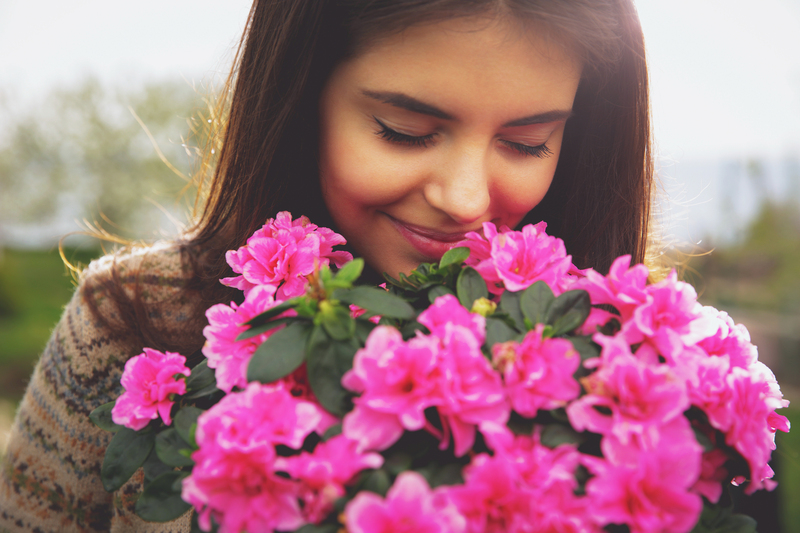Preserve Your Poinsettias: Simple Steps for Longevity
Posted on 26/08/2025
Preserve Your Poinsettias: Simple Steps for Longevity
Poinsettias, with their brilliant red, white, or pink leaves, are a hallmark of the holiday season. But did you know that, with the right care, you can preserve your poinsettias and enjoy their vibrant beauty far beyond just a few weeks? In this comprehensive article, we will guide you through simple, effective steps for ensuring the longevity of your poinsettias year-round. Read on to learn how to keep your festive plants healthy and glowing!
Understanding Poinsettias: More Than a Holiday Plant
Before diving into the care tips, let's take a moment to understand what poinsettias really are. Native to Mexico, these plants (Euphorbia pulcherrima) are prized for their colorful leaves, known as bracts, which are often mistaken for flowers. The true flowers are the tiny yellow clusters in the center.
- Name: Euphorbia pulcherrima
- Commonly Known As: Poinsettia
- Origin: Mexico and Central America
- Seasonality: Mostly associated with December, but can thrive year-round with proper care
By applying the following steps, you can preserve your poinsettia's longevity and ensure vibrant displays long after the festivities are over.

The Importance of Location and Light
Find the Perfect Spot
Choosing the right location is crucial for poinsettia longevity. These plants love:
- Bright, indirect sunlight
- Consistent temperatures between 65?F to 75?F (18?C-24?C) during the day
- Avoidance of cold drafts, direct heat, and sudden temperature changes
*Tip:* Place your poinsettia near an east or west-facing window, but keep it away from heaters, fireplaces, and exterior doors to protect it from temperature fluctuations.
Watering Wisely to Preserve Your Poinsettia
The Right Watering Rhythm
Watering is one of the most overlooked steps to extend poinsettia longevity. Improper watering causes leaves to wilt, drop, or even promotes root rot. Here's how to do it right:
- Check the top inch of soil - if dry, it's time to water your poinsettia.
- Use room-temperature water, pouring slowly around the plant base.
- Allow excess water to drain. Never let your poinsettia sit in soggy soil or standing water.
- If your plant has decorative foil, remove or puncture it to prevent trapped water.
- Water less frequently as the plant enters its post-holiday resting phase in late winter.
Under-watering leads to drooping and leaf drop, while over-watering suffocates roots. Striking a perfect balance is key to poinsettia preservation.
Humidity and Air Circulation: The Overlooked Essentials
Add Moisture To The Air
Poinsettias hail from humid, subtropical environments. Maintaining indoor humidity levels between 50-60% extends their life. Consider:
- Using a room humidifier during the dry winter months
- Grouping poinsettias with other plants to increase ambient humidity
- Placing the pot on a tray of moistened pebbles
- Misting leaves lightly (avoid wetting the bracts)
*Note*: Ensure proper air circulation, but keep your poinsettia out of strong drafts that can desiccate or chill the plant.
Fertilizing For Health and Growth
Though poinsettias don't require fertilization while in bloom, feeding them after the holiday season assures continued vigor. Here's how:
- Start fertilizing in late winter or early spring, after the colored bracts have faded.
- Choose a balanced, all-purpose houseplant fertilizer diluted to half strength.
- Fertilize every four to six weeks during the growing season (spring and summer).
- Pause feeding as soon as buds begin to form in early autumn.
Consistent, modest feeding is essential for long-lasting poinsettias and encourages dense foliage and vibrant color in the following season.
Post-Holiday Poinsettia Care: Encouraging Second-Year Blooms
What To Do When Festivities End
In January or February, you'll notice the bright bracts begin to fade and drop; this is natural. But with proper care, you can preserve your poinsettia for next year's bloom.
- Trim back the plant, cutting stems to 4-6 inches above the soil.
- Move to a sunny window, continue watering just enough to keep the soil barely moist.
- By spring, repot if roots are crowded, using fresh, well-draining soil.
As days lengthen, you'll see new growth. Fertilize lightly and resume regular care.
Summer: Outdoor Transition
After the danger of frost has passed, your poinsettia can safely live outdoors.
- Find a shaded or partially shaded location (avoid midday sun).
- Gradually accustom your plant to outdoor conditions over 7-10 days.
- Pinch back new shoots to encourage bushiness, leaving 3-4 leaves on each stem.
- Keep soil moist, and continue monthly feeding.
Fall: Light Control for Reblooming
Poinsettia reblooming depends on photoperiodism: they require long, uninterrupted nights for several weeks to trigger bract coloration. To preserve your poinsettia's beauty year after year, follow these steps from late September onward:
- Provide darkness for 12-14 hours per night by placing the plant in a closet or covering it with a cardboard box from 5 PM to 8 AM.
- During the day, expose it to bright, indirect sunlight.
- Repeat the darkness-light regimen faithfully for 8-10 weeks.
*Tip*: Even a brief exposure to artificial or street lighting can interrupt the blooming cycle.
Pruning and Shaping for Longevity
Why and How to Prune
Pruning isn't just for appearance! It helps your poinsettia branch out and become fuller, promoting more blooms next season.
- Begin major pruning in early spring, when all bracts have dropped.
- Remove dead, leggy, or weak growth, cutting just above a leaf node.
- As summer progresses, pinch tips of new shoots monthly until mid-August.
Never prune your poinsettia in autumn, as this removes developing flower buds.
Addressing Common Poinsettia Problems
Yellow Leaves, Droopiness, and Dropping Bracts
If your poinsettia leaves turn yellow and drop, or if the plant appears limp:
- Check for over-watering or under-watering.
- Ensure proper drainage; never let roots sit in water.
- Ensure stable temperatures; avoid hot/cold drafts.
Pest Watch
Poinsettias are generally pest-resistant, but occasionally, you might spot whiteflies, spider mites, or aphids. To keep your poinsettia strong:
- Inspect the undersides of leaves weekly.
- Remove insects with a gentle spray of water or by wiping with a damp cloth.
- For severe infestations, use insecticidal soap, but always test on a few leaves first to avoid damage.
Repotting for Root Health
When and How to Repot
Over time, poinsettia roots can outgrow their container, limiting the plant's health and growth. Repotting helps preserve your poinsettia's longevity:
- Repot in late spring, using a container one size larger than the current pot.
- Choose a fresh, well-draining soil mix.
- Loosen rootbound roots gently before placing them in the new pot.
- Water thoroughly after repotting, and keep out of direct sunlight for a few days.
Tips for Displaying and Enjoying Poinsettias All Year
- Group with other houseplants for an attractive green display.
- Transition outdoors for a lush patio plant in summer.
- Use decorative planters and rotate positions for seasonal interest.
With steady care, your poinsettia can thrive year-round, becoming a cherished part of your home's botanical collection.

FAQs: Your Poinsettia Longevity Questions Answered
How long can a poinsettia live?
Poinsettias can live for several years if provided with proper care -- many gardeners successfully keep them for 3-5 years or more.
Is it difficult to keep poinsettias blooming every holiday?
With the right light and dark treatment, plus correct pruning and fertilizing, you can preserve your poinsettia for yearly blooms -- it just takes patience and consistency!
Should I plant my poinsettia in the garden?
If you live in USDA Zone 9 or warmer, poinsettias can be grown outdoors all year. In cooler areas, keep them indoors or bring them inside before the first frost.
Preserve Your Poinsettias: Final Thoughts
Poinsettias are more than just holiday decor; they're enduring houseplants full of vibrant life. With the steps outlined here — correct light, temperature, watering, feeding, pruning, and seasonal attention to light needs — you can preserve the beauty and longevity of your poinsettia for many seasons.
Why not start your poinsettia care journey today? With just a little attention and creativity, you'll be rewarded with stunning color & heartwarming tradition for years to come.
- Choose the right spot: Bright, indirect sunlight is key
- Water wisely: Keep soil moist but not soggy
- Maintain humidity: Poinsettias love moisture in the air
- Feed regularly: Use gentle fertilizer in the growing season
- Encourage rebloom: Practice the blackout method for vibrant bracts each year
For further inspiration, discover our related guides on best houseplants for beginners and floral arrangements for every season. Happy growing!
Latest Posts
Seasonal Blooms: Top Flower Choices for [AREA] in Spring 2024
Preserve Your Poinsettias: Simple Steps for Longevity
Celebrate Birthdays with Stunning Floral Arrangements






